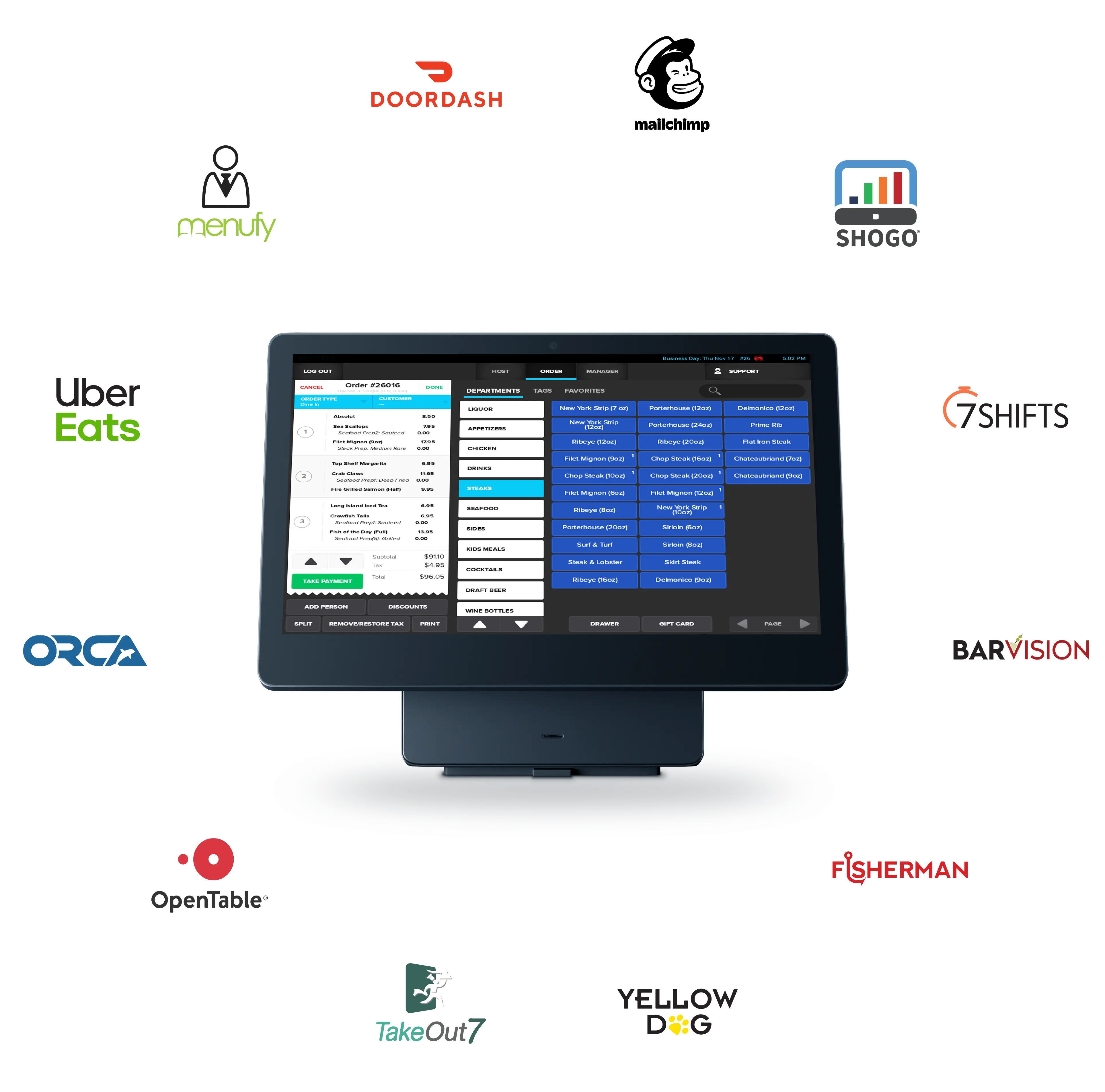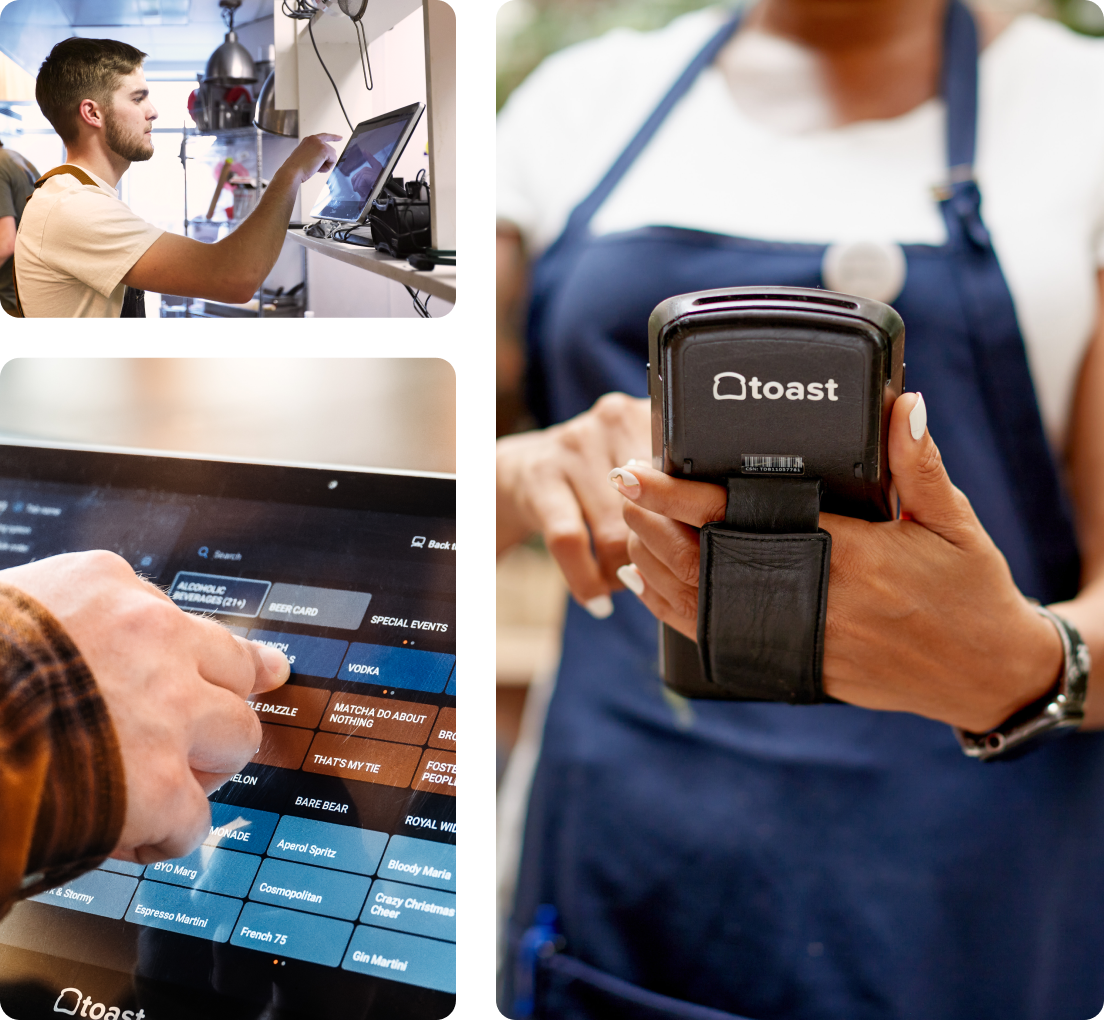Restaurant POS Software capabilities that reduce human error during rush times
Wiki Article
Understanding the Importance of POS Software in Modern Retail Operations
In today's retail landscape, the function of POS software has actually come to be increasingly considerable. These systems have actually changed from standard cash registers to multifaceted tools that improve different facets of procedures. They not just simplify purchases but also offer insights that can shape service methods. Recognizing just how these systems influence client experience and inventory monitoring is necessary for any retailer seeking to remain competitive. The implications of these advancements warrant more expedition.The Advancement of POS Software: From Purchase Handling to Comprehensive Solutions

Enhancing Client Experience With Advanced POS Features

Streamlining Stock Administration With Integrated POS Systems
Integrated POS systems play an important function in simplifying inventory management by automating processes that generally called for significant manual effort. These systems allow stores to track supply degrees in real time, eliminating inconsistencies that usually arise from hands-on stock counts. With functions such as barcode scanning and automated supply replenishment notifies, services can keep perfect stock degrees without overstocking or stockouts.Furthermore, incorporated POS systems help with exact forecasting by examining historic sales data, allowing merchants to make enlightened acquiring decisions. This predictive capability assists companies adapt to changing consumer demands and seasonal trends more effectively.Additionally, the centralization of inventory information throughout numerous sales networks improves exposure, allowing merchants to manage their stock more successfully. Eventually, the combination of POS systems into supply monitoring simplifies operations, lowers human mistake, and adds to enhanced profitability.Real-Time Sales Tracking and Coverage for Informed Decision-Making

Precise supply management lays the foundation for reliable sales tracking and coverage. Real-time sales tracking makes it possible for sellers to check sales performance as it occurs, supplying immediate insights right into consumer buying patterns and fads. This ability permits services to react swiftly to fluctuations sought after, maximizing stock levels and decreasing overstock or stockouts.Moreover, integrated POS systems help with the generation of in-depth records, highlighting key metrics such as sales by category, time periods, and private items. Such coverage capacities empower retailers to make data-driven decisions, determining effective methods and locations requiring renovation.
The Duty of POS Software in Customer Relationship Management
POS software plays a vital function in improving client partnership monitoring by making it possible for stores to apply personalized marketing strategies. By analyzing customer data, businesses can tailor promos and interactions to fulfill specific choices. In addition, these systems facilitate the growth of enhanced commitment programs that urge repeat service and reinforce consumer involvement.Personalized Advertising And Marketing Approaches
As stores significantly look for to boost client loyalty and engagement, personalized marketing techniques have become an important element of effective consumer connection management. POS software plays a vital duty in this process by collecting and assessing client information, allowing sellers to customize advertising efforts to private preferences and purchasing habits. By leveraging understandings from purchase backgrounds, merchants can create targeted promos and personalized interactions that resonate with consumers, promoting a much deeper connection. In addition, the integration of POS software with consumer partnership monitoring systems permits for smooth tracking of customer communications, guaranteeing that advertising methods remain pertinent and timely (Restaurant POS Software). This data-driven approach not only improves consumer satisfaction yet additionally drives sales and motivates repeat business, solidifying the seller's market positionBoosted Loyalty Programs
Retailers are significantly recognizing the value of loyalty programs in fostering long-term consumer relationships and improving general engagement. POS software plays an essential function in the growth and administration of these programs, allowing stores to track customer purchases, choices, and behaviors successfully. By leveraging data analytics, businesses can create tailored rewards and incentives that resonate with individual consumers, therefore enhancing engagement in commitment programs. Additionally, POS systems enable seamless integration with mobile apps and electronic systems, helping with simple accessibility to rewards and promotions. This not just enhances client contentment but likewise drives repeat company. Inevitably, POS software equips retailers to cultivate much deeper links with their clients, transforming periodic consumers into loyal customers with targeted and purposeful engagement approaches.Incorporating POS Systems With Shopping Platforms for Omnichannel Success
To accomplish true omnichannel success, smooth integration between point-of-sale (POS) systems and ecommerce systems is essential. This combination allows stores to unify their supply management, ensuring that item availability is precisely reflected throughout both online and physical shops. Customers take advantage you can find out more of a cohesive buying experience, where they can easily switch between channels without running into discrepancies.Furthermore, incorporated systems help with real-time information sharing, making it possible for services to assess client habits and choices better. This data-driven approach permits sellers to customize advertising techniques and enhance supply degrees, inevitably boosting client satisfaction and driving sales.Additionally, the capability to procedure transactions throughout systems simplifies procedures, decreasing the danger of mistakes and boosting general efficiency. As stores significantly adopt omnichannel methods, the integration of POS systems with shopping systems continues to be a crucial consider achieving sustainable development and keeping affordable benefit in the dynamic retail landscape.Future Patterns in POS Technology and Their Effect on Retail Operations
As retail operations evolve, future trends in POS technology are established to improve the landscape substantially. The rise of cloud-based services, advancements in mobile POS systems, and the advantages of AI combination are amongst the essential advancements anticipated to enhance performance and consumer experience. These innovations guarantee to streamline processes and promote a much more vibrant retail environment.Cloud-Based Solutions Surge
With the increasing reliance on modern technology, cloud-based POS services are transforming retail operations by supplying boosted adaptability and scalability. These systems allow merchants to access real-time data from anywhere, helping with far more tips here better decision-making and customer care. By leveraging cloud infrastructure, companies can minimize upfront costs related to software and hardware setups while guaranteeing smooth updates and upkeep. Furthermore, cloud-based services sustain multi-location monitoring, allowing stores to synchronize inventory and sales throughout various electrical outlets easily. This adaptability is important in today's busy market, where customer choices shift rapidly. As more stores embrace these options, they can expect improved operational effectiveness and a more responsive approach to market needs, eventually enhancing client fulfillment and loyalty.Mobile POS Innovations
The development of retail modern technology remains to shape operations, particularly with the increase of mobile POS advancements. These systems make it possible for retailers to process purchases anywhere within the shop, improving customer interaction and streamlining checkout processes. Mobile POS remedies boost supply administration by permitting immediate access to supply levels, helping staff assist consumers much more effectively. On top of that, they assist in individualized buying experiences via incorporated client data and loyalty programs. As smart phones end up being significantly advanced, stores are adopting functions such as contactless settlements and digital receipts, in addition optimizing the buying trip. The change towards mobile POS not only enhances functional efficiency yet additionally aligns with the growing customer choice for convenience, making certain that retailers stay affordable in a swiftly developing market.AI Assimilation Advantages
AI integration stands for a transformative jump in POS technology, providing stores a myriad of benefits that boost functional efficiency and consumer experience. By leveraging artificial intelligence formulas, retailers can evaluate buying patterns and maximize inventory management, lowering waste and stockouts. Additionally, AI-powered analytics supply personalized marketing recommendations, enabling targeted promotions that enhance client interaction and loyalty. Chatbots and digital aides enhance client service, allowing for quicker resolution of inquiries and enhancing the overall shopping experience. Anticipating analytics can additionally anticipate need trends, enabling smarter staffing and resource appropriation. Inevitably, the assimilation of AI link in POS systems empowers retailers to make data-driven decisions, promoting an one-upmanship in an ever-evolving retail landscape.Regularly Asked Inquiries
What Are the Costs Connected With Carrying Out POS Software?
The costs linked with implementing POS software can include software licensing fees, hardware costs, setup fees, training prices, and ongoing maintenance. Each element adds to the overall investment necessary for an effective application.
How Can Tiny Retailers Take Advantage Of POS Systems?
Tiny retailers can benefit from POS systems via enhanced deal effectiveness, structured inventory administration, and boosted customer insights. These systems allow far better decision-making, ultimately causing increased sales and customer contentment in open markets.
What Hardware Is Needed for a POS System?
A regular POS system requires necessary hardware elements, consisting of a touchscreen display, cash drawer, barcode scanner, invoice printer, and settlement terminal. These components collaborate to promote reliable transaction processing and inventory administration for stores.
Can POS Software Be Custom-made for Specific Retail Demands?
POS software can indeed be customized to meet specific retail needs. Restaurant POS Software. This flexibility enables companies to tailor attributes, interfaces, and reporting devices, improving operational performance and supplying a more personalized experience for both team and clientsHow Safe And Secure Is Client Data in POS Systems?
The protection of client data in POS systems differs widely. Several systems carry out file encryption, protected access controls, and normal updates, however vulnerabilities can still exist, requiring ongoing watchfulness and positive actions from retailers to shield delicate details.Report this wiki page